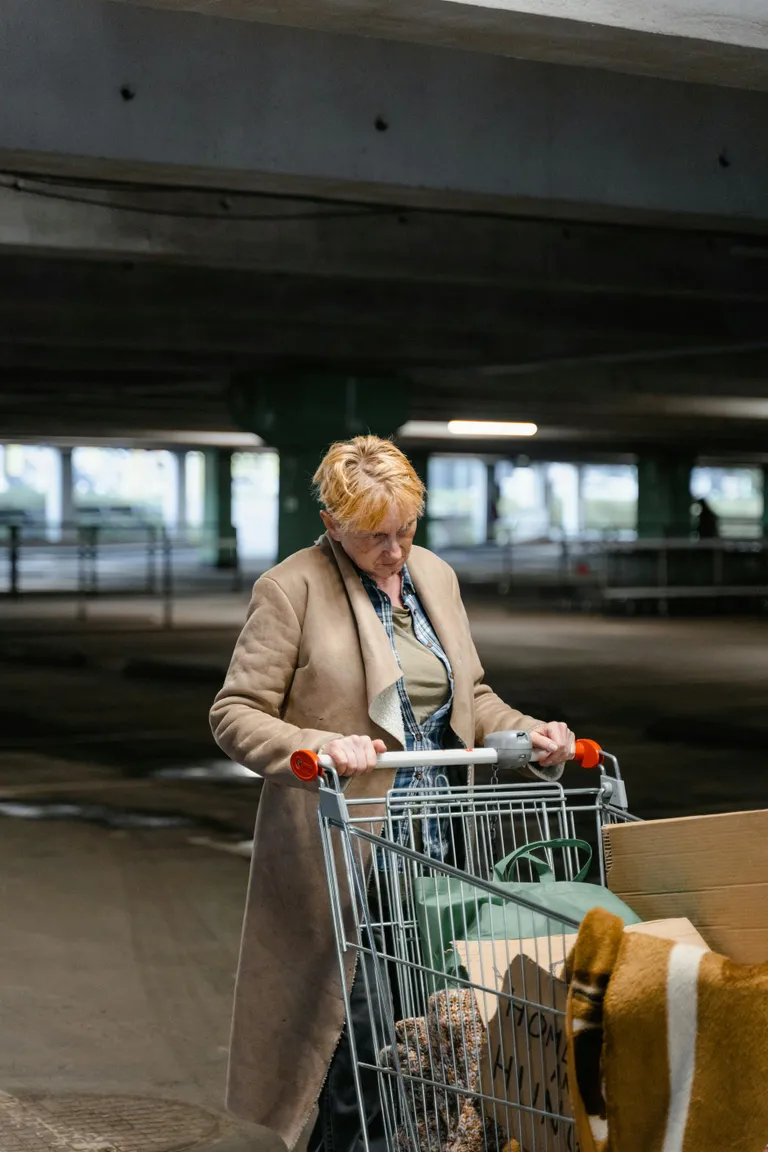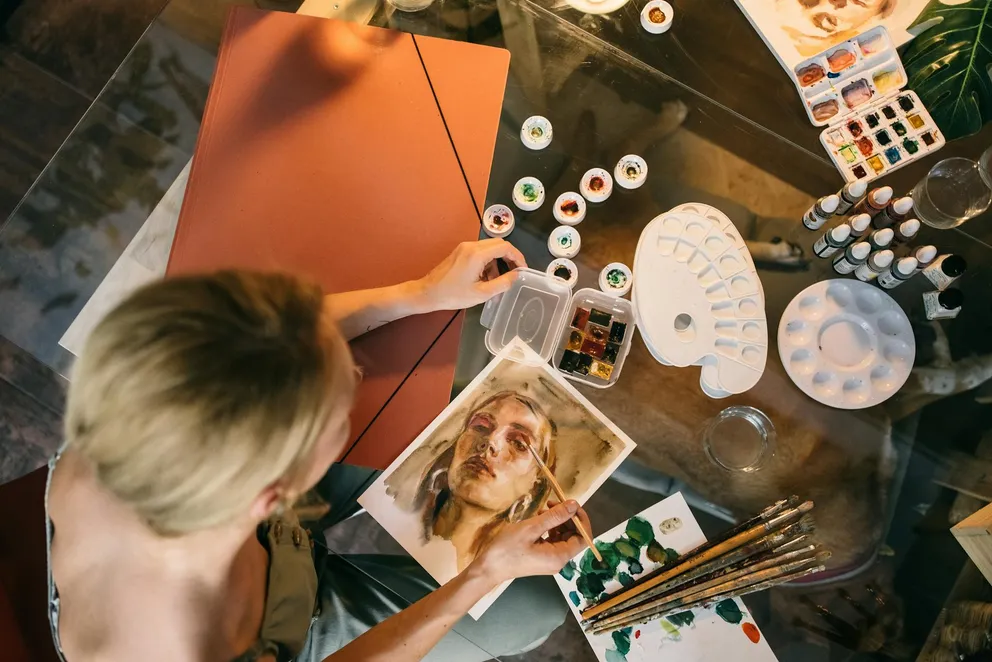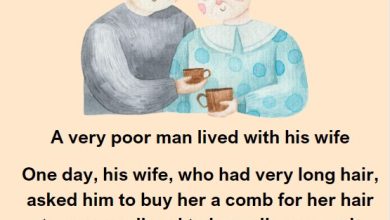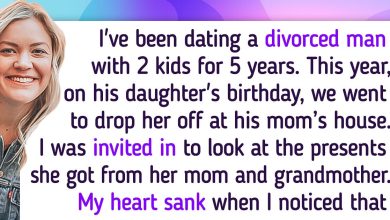When Lexi, a homeless woman, is offered by a wealthy, he’s drawn to her resilience. As their unlikely bond grows, a discovery in his garage threatens everything, forcing him to question who Lexi really is and what she’s hiding.
I was happy because I had everything money could buy a sprawling estate, luxury cars, and more wealth than I could spend in a lifetime. Yet inside, there was an emptiness I couldn’t fill. At sixty-one, I’d never had a family and now, I was left wishing I’d lived my life differently.
One day, as I drove through the city, trying to shake off the familiar sense of loneliness, I noticed a woman rummaging through a trash can. She was disheveled, with thin arms and a determination in her movements that caught my attention. She looked fragile, yet something about her fierceness tugged at me.
Before I even realized it, I had pulled over. Rolling down the window, I watched her cautiously. When she looked up, startled, I asked, “Do you need some help?”
Her eyes were wary, and for a moment, I thought she’d run. But instead, she straightened up and brushed her hands on her worn jeans. “You offering?”

“I guess I am,” I replied, stepping out of the car, though I wasn’t sure why I was reaching out. “You have somewhere to go tonight?”
She said: “No.”
I nodded, taking a deep breath. “I have a guest house—well, a garage I’ve converted. You can stay there for a while, if you want.”
She studied me, her gaze sharp. “I don’t take charity.”
“It’s not charity,” I said, unsure of what else to call it. “Just a place to stay. No strings attached.”
After a long pause, she agreed. “Okay. Just for the night. I’m Lexi.”
Because I drove her to my estate, the silence in the car was heavy. She sat staring out the window. When we arrived, I showed her to the guest house. It was simple but livable.
“There’s food in the fridge. Make yourself at home,” I said.
“Thanks,” she muttered before closing the door behind her.
Over the next few days, Lexi stayed in the guest house, and we occasionally had meals together. Something about her intrigued me—her tough exterior, hiding a quiet vulnerability.
One evening over dinner, Lexi opened up about her past.

“I used to be an artist,” she said softly. “I had a small gallery, a few shows… but it all fell apart after my husband left me. He ran off with someone younger, got her pregnant, and kicked me out.”
“I’m sorry,” I said, feeling a deep sympathy for her.
“It’s in the past,” she shrugged, but I could tell the pain was still there.
After we spent more time together, I found myself to enjoy to our conversations. Her sharp wit and humor cut through the quiet gloom of my empty estate, and slowly, the hollow space inside me began to feel smaller.
But everything changed one afternoon. I was searching for an air pump in the garage when I walked in unannounced and froze. Spread across the floor were dozens of paintings—of me. Grotesque, twisted versions of me. One showed me in chains, another with bl00d pouring from my eyes, and in one corner, there was a painting of me lying in a coffin.
A wave of nausea hi:t me. This was how Lexi saw me? After everything I had done for her?
That evening at dinner, I couldn’t hide my anger. “Lexi, what the hell are those paintings?”
She said: “What?”
“I saw them—the paintings of me, in chains, bleeding, in a coffin. Is that how you see me? As some kind of monster?”
Her face went pale. “I didn’t mean for you to see those,” she whispered.
“Well, I did,” I said coldly. “Is that what you think of me?”
“No,” she said, her voice breaking. “I was just… angry. You have everything, and I’ve lost so much. The paintings weren’t about you—they were about my pain. I needed to get it out.”
I wanted to understand, but the images were too disturbing. “I think it’s time for you to go,” I said quietly.
Lexi’s eyes widened. “Wait, please—”

“No,” I cut her off. “It’s over. You need to leave.”
I helped her pack and drove her to a nearby shelter in the next morning. She didn’t say much, and neither did I. Before she got out, I handed her a few hundred dollars. She hesitated but eventually took it.
I couldn’t shake the feeling that I’d made a mistake day by day. Not just because of the disturbing paintings, but because of what we’d had before—something real, something I hadn’t felt in years.
Then one day, a package arrived at my door. Inside was a painting of me, but this one was different. It was serene, peaceful—capturing a side of me I didn’t know I had. Tucked inside the package was a note with Lexi’s name and phone number.
My heart raced as I hovered over the call button. Finally, I hit “Call.”
When Lexi answered, her voice was hesitant. “Hello?”
“Lexi, it’s me. I got your painting… it’s beautiful.”
“Thank you,” she said quietly. “I wasn’t sure if you’d like it. I thought I owed you something better than… those other paintings.”
“You didn’t owe me anything, Lexi. And I wasn’t fair to you either.”
“I’m sorry for what I painted,” she said. “It wasn’t really about you.”
“You don’t have to apologize,” I replied, meaning every word. “I forgave you the moment I saw that painting. And I’ve been thinking… maybe we could start over?”
“What do you mean?” she asked cautiously.
“Maybe we could talk again. Have dinner, if you’d like.”
She paused and said: “I’d like that. I’d really like that.”
Yesterday, we made plans to meet in a few days. Lexi said to me she’d used the money I gave her to buy new clothes and get a job. She was planning to move into her own apartment soon.
After I hung up the phone, a smile spread across my face. Maybe this was a new beginning, not just for Lexi, but for me as well.







